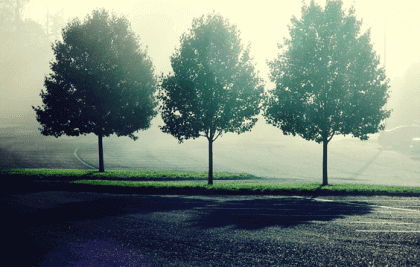The human mind reacts in different ways to high-impact negative experiences, from blocking to beginning to have a sequence of disturbing thoughts or, in some cases, creating escape routes to escape this unpleasant reality.
The problem is that, in most cases, far from eliminating anxiety, this leak strengthens and strengthens it, especially if it is based on expectations and assumptions.
- Sometimes human beings see dangerous situations that are not.
- This usually happens because there is a tendency to associate forceful experiences from the past.
- Even if they have nothing to do with them.
This happens, for example, when one is afraid of someone because in the past some have been cruel or abusive.
“The escape never led to anyone. ” -Antoine de Saint-Exupéry-
The truth is that the mind creates these escape routes as mechanisms of protection and control of anxiety, then we will present three of these escape routes that, far from calming anxiety, end up getting worse.
If we are exposed to a threatening situation, it is logical to analyze, confront and overcome it as much as possible, however, when there are negative past experiences that revolve around our lives, we may not be able to act reasonably.
Instead of identifying and assuming the threat, on many occasions we end up looking for escape routes, the first is to imagine ourselves in a terrible future, let’s look at an example.
Someone loses their job and has unpaid debts to the bank. The logic would be to work hard to find a new job and perhaps try to renegotiate debts with the bank.
However, if in the past the person has had a traumatic experience of exclusion or unemployment, they may end up acting differently. Maybe he’ll be overcome by anxiety and spend a lot of time imagining a terrible future.
She will be be be begging in the streets or arrested, for example. Anyway, he won’t assume what’s in front of you. Similarly, the escape routes she imagines don’t lead her to solve the problem.
Sometimes we are very good at blaming each other, it is not uncommon for anxiety to lead us to choose one of these escape routes linked to martyrdom.
Instead of finding out how to correct a mistake or learn from it, we started punishing ourselves thinking about everything we could have done and didn’t do, or everything we could be and aren’t.
One way to escape anxiety is to compare yourself to the ideal models. Of course, lose. It is the result of past experiences that have affected us emotionally.
This occurs mainly with experiences of rejection or punishment for not having done it at any time. And so they are reflected in the present, as a condemning anguish for whatever mistakes we have made.
Another way to escape anxiety leads to the past, this happens when we face a frustrating or painful situation that we cannot accept.
The most common thing is that it happens when we go through an emotional loss, either by death or by a relationship that has ended or caused frustration, so we feel a lot of anxiety and try to dispel it by returning, several times. , to the memories of what it was and what it is not.
This also does not eliminate the anguish of the situation, we may have a sense of comfort when we look at the facts of the past, however sooner or later we must return to the present and therefore feel anxiety with all its might. .
It’s a big emotional disaster to go through this. However, we do not realize that we would spend less energy accepting what happened than reliving the past over and over again.
As we see, it is very important to work to develop all the traumatic experiences of the past, they will never be forgotten, even if they can be ignored or repressed, but they never cease to exist, prowling in our present.
That’s why it’s important to deal with these negative situations, work on them and be able to get rid of them, when we don’t do that, they end up being released into anguish, so they easily lead us to some of the escape routes, which in turn fuel new anxieties.

